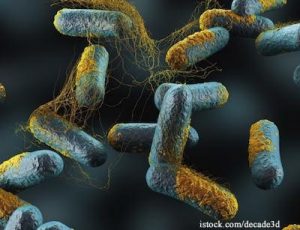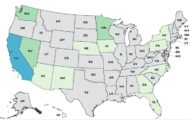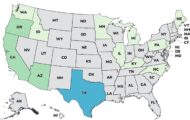The foodborne bacteria Clostridium perfringens doesn’t grab many headlines, but it’s a common source of food poisoning and the one most often cited as the cause of food poisoning outbreaks at large gatherings such as wedding receptions, fundraisers and conventions. As the third-most common source of food poisoning it sickens about 1 million Americans every year, but researchers are still learning about the big impact the little bug can have on the human body such as a new study that shows illness from the bacteria causes colon damage.
 Previous studies on rabbits have shown that C. perfringens infections cause damage to the small intestine. This study found for the first time that damage also occurs in the colon.
Previous studies on rabbits have shown that C. perfringens infections cause damage to the small intestine. This study found for the first time that damage also occurs in the colon.
Symptoms of food poisoning from C. perfringens include watery diarrhea and abdominal cramps beginning within 6 to 24 hours after the meal and lasting less than 24 hours. People with C. perfringens infections usually do not have fever or vomiting.
The study, which appears in the June issue of Infection and Immunity, was conducted by researchers form the California Animal Health and Food Safety Laboratory System, at the School of Veterinary Medicine, University of California Davis in San Bernardino and the Microbiology and Molecular Genetics, department at the University of Pittsburgh School of Medicine, Pittsburgh.
They found histologic lesions and fluid accumulation in the colons of rabbits infected with C perfringens. The findings offer new perspective on treatment and long-term complications of these infections in humans.




